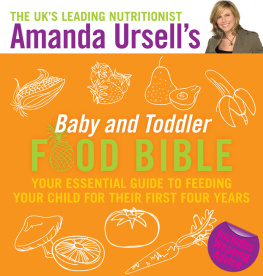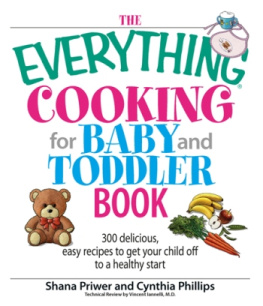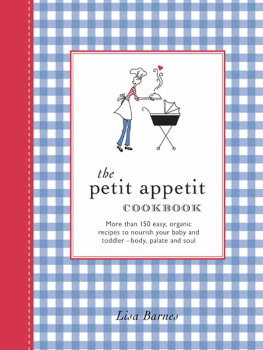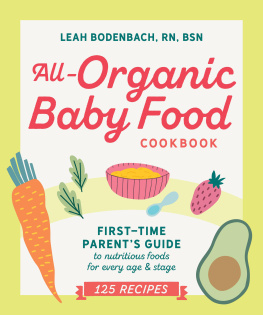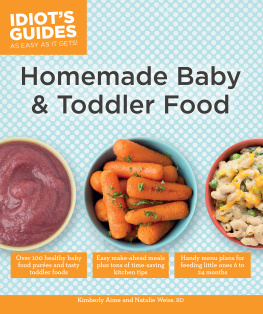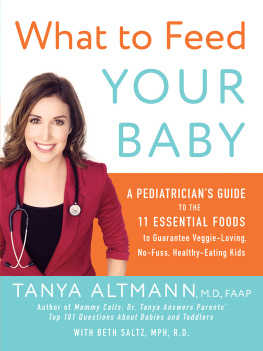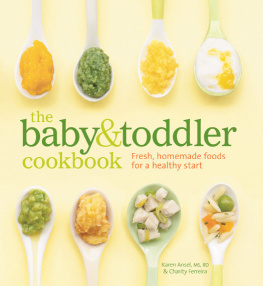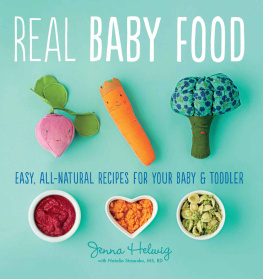
Amanda Ursell, 2011
The moral rights of the author have been asserted.
All rights reserved. No part of this book may be reproduced by any mechanical, photographic or electronic process, or in the form of a phonographic recording; nor may it be stored in a retrieval system, transmitted or otherwise be copied for public or private use, other than for fair use as brief quotations embodied in articles and reviews, without prior written permission of the publisher.
The author of this book does not dispense medical advice or prescribe the use of any technique as a form of treatment for physical or medical problems without the advice of a physician, either directly or indirectly. The intent of the author is only to offer information of a general nature to help you in your quest for emotional and spiritual wellbeing. In the event you use any of the information in this book for yourself, which is your constitutional right, the author and the publisher assume no responsibility for your actions.
A catalogue record for this book is available from the British Library.
ISBN 978-1-84850-322-9 in print
ISBN 978-1-84850-564-3 in epub format
ISBN 978-1-84850-563-6 in Mobipocket format
For Coco and Freddie,
love Mummy x
ACKNOWLEDGEMENTS
My thanks to Franco for all his help with the delicious and tasty recipes that he cooks at home and that he has taught me and others to rustle up for our little ones. Thank you to Susan Brydon for her invaluable help with baby pures. I had to return to work quickly after having Freddie, and Susan introduced me to a method for making them and to a wide variety of combinations that I would never, in my sleep-deprived state, have thought of putting together. We spent many a coffee break in Italy talking over party foods and fast foods. I appreciated your input hugely, Sue-Sue. My thanks to Nina for keeping our house going. And finally a huge thank you to my dad for making mealtimes fun and my lovely mum who fed me so sensibly when I was a baby, a toddler, a child, a teenager and now when we all come over to your place. Your firm but sensible rules and down-to-earth approach to balanced meals and good nutrition and table manners stood me in good stead. Thank you, Mum.
WHY READ THIS BOOK? *
The first thing to grasp as a mother is that you know best. That is very often the reality, however at sea you may feel. Too many people try to tell you how to do things their way when you have your first baby but if you follow your own instincts (and your health visitors guidance) you wont go far wrong. You will quickly learn to distinguish between types of cries: when for example your baby needs forty winks; when they are hungry; and when they need a cuddle for a bit of reassurance.
One of the areas where you may feel less sure of your ground is when it comes to weaning and what to feed your little ones through the toddler years. I trained as a dietitian and nutritionist and you may think that would make me 100 per cent certain of what I needed to feed my little ones. Yet, when it came to the crunch, I kept looking things up to make sure I was on the right track.
When a well-meaning relative insisted that it was fine to give my nine-month-old daughter toast with lots of butter and marmalade I knew it wasnt, but they almost convinced me I was wrong. And when another started giving her a Cornetto at ten months, telling me it was a bit of fun, I found it hard to wade in and say that, actually, it wasnt right at all, especially given that I was shattered from broken nights, my body was still in the grip of a hormonal rollercoaster and I was in their house, not mine. Knowing right from wrong about what to feed our babies and children can be fraught with these kinds of situations and knowing your facts will certainly help you through.
The list of what foods to give your baby and when to introduce them can be daunting. There seem to be so many rules: everything from food safety to allergy issues. Eggs, for instance, must be well-cooked as soft-boiled eggs carry a risk of salmonella. Certain fish need to be avoided while others should be limited to a certain number of servings per week for fear of overloading little bodies with pollutants.
With two toddlers under three, everything is fresh in my mind and Ive made sure that my advice is easy to follow. The recipes are doable when you are time-short, sleep-deprived and feeling as though it is a triumph merely to get yourself and the children dressed in the morning. (You deserve a gold medal if you actually manage to put on a bit of mascara!)
I hope that you find my book useful. It is based on the experience of real mums, alongside the latest health advice. If nothing else, it will give you the ammunition you may need to explain to helpful friends and relatives why you are doing things your way and not theirs. Hopefully, too, it might enable you to pass on your new ideas and recipes to other mums. It could help give them a boost if they are feeling at sea.

Why It Matters What and How We Feed Our Babies
Right from the very start, what we feed our babies and how we feed them matters. You will be laying foundations for life, with habits and food preferences that will affect them developmentally, physically, emotionally and socially.
WHY REAL FOOD COUNTS *
TASTE PERCEPTION
All babies are born with an innate preference for sweet foods. This is just as well because breast milk is sweet-tasting and is the safe, nutritionally complete food for their initial needs. I remember seeing photos at a lecture of a brand spanking-new baby who was given the tiniest amount of a naturally sweet-tasting solution on her tongue. The expression on her face was captured in a photograph: undoubtedly pleasure. Then she was given a bitter-tasting substance (I can only assume that this little baby had research scientists for parents who knew what they were doing!). This time, the babys face crumpled with displeasure. When given a sour taste, the baby puckered her lips as if she were sucking lemons. Interestingly, had she been given a salty taste she would not have reacted because babies cant discern saltiness until they are a few months old. (It is good to know that you are not born with this preference.)
While we are born with a liking of sweet foods and a dislike of bitter-tasting foods, tastes develop and mature so that the latter can be successfully introduced gradually to meals. We can incorporate sweet foods in a moderate way too. It is here where parents play a large role in shaping their childrens future palates, their food and drink choices and, in turn, their nutritional intake. Their future health is to a great extent in your hands.
From the earliest stages of weaning, if we feed our growing children fresh, healthy and tasty food in a safe and happy environment we are encouraging a lifetime of healthy eating. A meal (even a pure) eaten when calm and happy can help to determine whether it is enjoyed and therefore wanted again. A stressful, unhappy environment can equally put a child off food or drink.
It is hard to know where the taste preferences we are born with end and the learning and conditioning to enjoy others begin. We do know that the best we can do is offer healthy food in a positive situation at mealtimes. That way, it gets the best possible chance of being eaten and enjoyed. Sorry to bang the message home but it is an important one. If you serve real food from the word go then your babies are more likely to grow into children who expect to eat real, tasty food. If all they know is the taste of processed food from jars and packets, doled out in an unsympathetic environment, it shouldnt be a surprise that all they want is processed food in the future. We are creatures of habit, after all. Eating these foods in this kind of environment can also lay down the foundations for fussy eating (see the ). However, the chances are that you wont need this information if you appreciate how vital it is to establish positive habits from the start.
Next page
